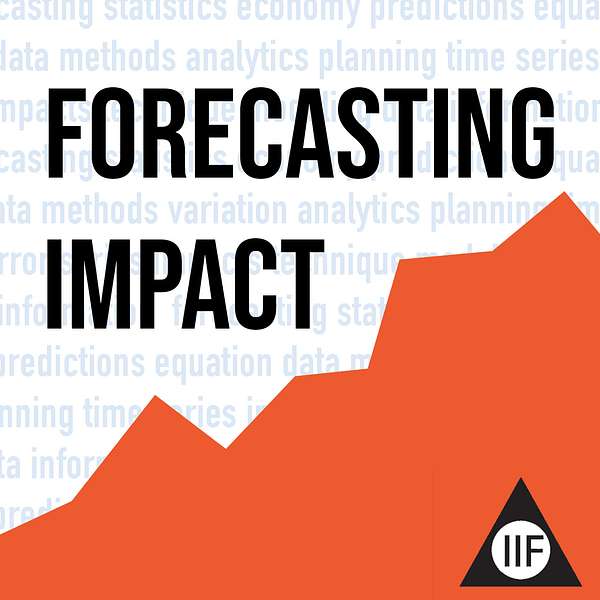
Forecasting Impact
Forecasting Impact is a bimonthly podcast that aims to disseminate the science and practice of forecasting by introducing prominent academics, practitioners, and visionaries in the forecasting domain. Our vision is to help grow the forecasting community, foster collaboration between academia, industry, and governments, and promote scientific forecasting and good practices.
We will discuss a range of forecasting topics in economics, supply chain, energy, social goods, AI, machine learning, data analytics, education, healthcare, and more.
Forecasting Impact episodes are also available on the IIF YouTube Channel @IIForecasters.
Podcast Team
Chair and Co-host: Dr. Laila Ahadi-Akhlaghi, Senior Technical Advisor at JSI.
Additional co-hosts:
- Dr. Mahdi Abolghasemi, Lecturer in Data Science at The University of Queensland,
- George Boretos, Founder & CEO at FutureUP,
- Dr. Faranak Golestaneh, Data Science Senior Manager at Commonwealth Bank of Australia,
- Mariana Menchero, Senior Forecaster at Nixtla, and
- Arian Sultan Khan, Data Analyst at VAN
Co-hosts in the past have included: Michał Chojnowski, Shari De Baets, Elaine Deschamps, Dr. Sevvandi Kandanaarachchi, Bahman Rostami-Tabar, Anna Sroginis, and Sarah Van der Auweraer.
We welcome your feedback, questions, and suggestions. Please contact us at forecastingimpact@forecasters.org
Forecasting Impact
Forecasting in Healthcare with Hema Srinivasan
In this episode, hosts Arian Sultan and Laila Akhlaghi discuss financial tools that enable healthcare markets to function more efficiently and how forecasting plays an important role in their execution with Hema Srinivasan of MedAccess. Hema Srinivasan is a senior advisor to MedAccess, supporting work to identify and execute opportunities for financial tools to help lower prices and increase the availability of medical products. She supports the Health Markets team in sourcing and developing pipeline opportunities for the deployment of MedAccess’ tools, managing the monitoring and implementation of transactions post-execution, and analyzing development impact throughout the partnership development and implementation process.
This episode explores her career and how she has used forecasting to develop market-shaping mechanisms and the methodologies that have led to increases in access to life-saving medical products. This includes analyzing market failures, identifying leverage points for intervention, and implementing policies or programs to rectify imbalances. The episode discusses how these interventions can lead to sustainable and scalable impacts, particularly in sectors where market inefficiencies hinder progress. It highlights interventions that lower prices and increase access to pharmaceuticals, diagnostics, and other medical products in low and middle-income countries (LMICs).